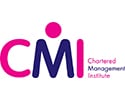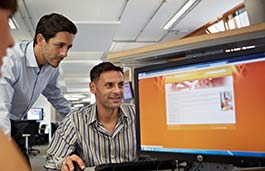Search
Games Technology MSc
Study level: Postgraduate
Develop advanced programming skills in game engines and emerging technologies while building a strong portfolio. Gain industry and entrepreneurial experience and prepare for roles such as gameplay or engine programmer.
Year of entry
Location
Coventry University (Coventry)
Study mode
Full-time
With Professional Placement
Duration
1 year full-time
Up to 2 years full-time with professional placement
Course code
EEST045
Start date
November 2025
January 2026
March 2026
May 2026
July 2026
Course overview
This course is designed for professionals in any computational discipline with an interest in games technology. Advance your programming experience and skills in C++ and C# with a focus on game engines and collaborative development.
- Develop the key skills you need to succeed in industry-relevant roles such as gameplay programming, engine programming, technical art, or tools programming.
- Engage in teamwork and collaborative projects with industry-standard version control approaches. Build a strong portfolio.
- Modules are designed to help you create portfolio artifacts that are directly aligned with assessments. This includes the outputs of three individual projects, a group project and a dissertation.
5 QS Stars for Teaching and Facilities
QS Stars University RatingsRanked 9th Modern University in UK by the Times
The Times and Sunday Times Good University Guide 2025Ranked 4th for Overall Satisfaction in PTES
Postgraduate Taught Experience Survey (PTES) 2025Why you should study this course
Prepare for a career as a professional software developer and develop the skills you need to begin a career in the games industry.
- Advance your software development skills in C++ and C#, game engines such as Unity and Unreal, and explore emerging technologies like AR/VR.
- Enhance your algorithmic design skills to translate them into effective GPU and CPU programming. This should empower you to tackle research-oriented problems with greater capacity. Build a high-quality portfolio of artefacts you can use when applying for jobs.
- Participate in Global Game Jam.2
- There are many local game societies based around Leamington Spa (Silicon Spa) and regular industry events throughout the West Midlands that you may be able to attend and join.2
- Gain practical experience and boost your CV with an additional professional placement. See the modules for more details.2
Accreditation and professional recognition

Chartered Management Institute
The module Tools Programming meets the criteria set by the Chartered Management Institute (CMI) for the CMI Level 7 Certificate in Strategic Management and Leadership Practice. Students who successfully pass this module will be eligible to gain the award as an additional qualification at no additional cost.
What you'll study
We regularly review our course content, to make it relevant and current for the benefit of our students. For these reasons, course modules may be updated.
How you'll learn
Teaching and learning methods may include:
- lectures
- seminars
- tutorials
- presentations
- group projects
- workshops
- practical laboratory sessions.
Teaching contact hours
As a full-time postgraduate student, you will study modules totalling 180 credits each academic year. A typical 30-credit module requires a total of 300 hours of study. Study hours are made up of teaching contact hours, and guided and independent study.
Teaching hours
Teaching hours may vary, depending on where you are in your studies, but on average you will have between 8 and 12 teaching and learning hours each week. You will also have the opportunity to attend optional sessions including time with a Success Coach or to meet with staff for advice and feedback.
Guided and independent study.
Throughout your studies, you will be expected to spend time in guided and independent study to make up the required study hours per module. You will be digging deeper into topics, reviewing what you’ve learnt and completing assignments. This can be completed around your personal commitments. As you progress to the end of your studies, you’ll spend more time on independent learning.
Online learning
As an innovative university, we use different teaching methods, including online tools and emerging technologies. So, some of your teaching hours and assessments may be delivered online.
Assessment
Assessment methods may include:
- presentations
- group projects
- live simulations
- individual application development work
- portfolios
- written documentation.
The Coventry University Group assessment strategy ensures that our courses are fairly assessed and allows us to monitor student progression towards achieving the intended learning outcomes.
Entry requirements
Typical entry requirements:
Fees and funding
| Student | Full-time | Part-time |
|---|---|---|
| UK, Ireland*, Channel Islands or Isle of Man | £11,200 £1,500 professional placement fee (if placement secured) |
Not available |
| EU | £11,200 per year with EU Support Bursary** £1,500 professional placement fee (if placement secured) per year with EU Support Bursary** £18,600 per year without EU Support Bursary** £1,800 professional placement fee (if placement secured) per year without EU Support Bursary** |
Not available |
| International | £18,600 £1,800 professional placement fee (if placement secured) |
Not available |
For advice and guidance on tuition fees3 and student loans visit our Postgraduate Finance page and see the university's Tuition Fee and Refund Terms and Conditions.
We offer a range of International scholarships to students all over the world. For more information, visit our International Scholarships page.
Tuition fees cover the cost of your teaching, assessments, facilities and support services. There may be additional costs not covered by this fee such as accommodation and living costs, recommended reading books, stationery, printing and re-assessments should you need them.
The following are additional costs not included in the tuition fees:
- Any optional overseas field trips or visits: £400+ per trip.
- Any costs associated with securing, attending or completing a placement (whether in the UK or abroad).
*Irish student fees
The rights of Irish residents to study in the UK are preserved under the Common Travel Area arrangement. If you are an Irish student and meet the residency criteria, you can study in England, pay the same level of tuition fees as English students and utilise the Tuition Fee Loan.
**EU Support Bursary
Following the UK's exit from the European Union, we are offering financial support to all eligible EU students who wish to study an undergraduate or a postgraduate degree with us full-time. This bursary will be used to offset the cost of your tuition fees to bring them in line with that of UK students. Students studying a degree with a foundation year with us are not eligible for the bursary.
Facilities
Games lab
Whether you’re looking to develop digital games or create stunning art pieces and help guide art direction in video games, our computer suite is filled with high-end gaming PCs, suitable for work in a range of software and engines.
VR suite
Featuring all you need and can expect to experience in the world of work, this dedicated suite includes motion capture technology, green screen, lighting rig and a control room.
Immersive sound studio
Our purpose-built 360° audio studio provides you with access to an industry-standard Dolby Atmos-Genelec sound facility. Design sound in 3D using the mixer desk and VR tools for games, film, and immersive environments.
Facilities are subject to availability. Access to some facilities (including some teaching and learning spaces) may vary from those advertised and/or may have reduced availability or restrictions where the university is following public authority guidance, decisions or orders.
Careers and opportunities
On successful completion of this course, you could find yourself applying for roles such as:
- gameplay programmer
- technical artist
- VR/AR developer
- graphics programmer
- AI programmer
- physics programmer
- software developer (games industry)
- game engine developer
- simulation developer
- game researcher
- game producer
- game designer (technical focus)
- UI/UX programmer (games)
- consultant (games technology)
- entrepreneur (games tech start-ups)
You should also be equipped with transferable skills suitable for broader software development and technology roles.
How to apply
You may also like

Computer Science MSc






